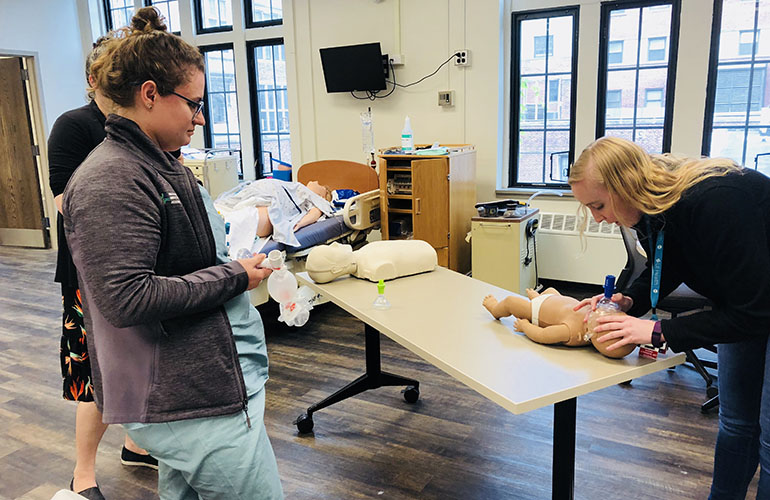RN's vs MD's: A Study on ACLS Performance

A doctor and a Walmart pharmacy technician walk into an AHA training site. It may sound like the start of a bad joke, but at Chicago Heart Training, we struggled to laugh. After both had completed online HeartCode ACLS, the pharmacy technician proceeded to outperform the doctor in both knowledge and practical skills. When asked about which cardiac arrest rhythms to give amiodarone for, or how often to give a breath to an apneic patient with a pulse, it was the pharmacy tech who knew - not the doctor.
This dynamic of lower-level providers outperforming doctors in ACLS courses is a dynamic that was questioned in a 2017 study performed by Chicago Heart Training. We gathered data on written exam scores (controlled for exam version) and practical skills testing (with students rated on a scale of 1-10), and compared it to provider type (level of certification or licensure). Information on the ACLS student's gender, age, and years of practice at their level of certification was also obtained. Overall, the study showed that RN's performed similarly to physicians in ACLS courses.
Overall, RN's scored an average of 2.3% lower on the ACLS exam than MD's. On the 1-10 scale for skills proficiency, RN's scored 0.9 lower on ACLS skills and 0.5 higher than MD's on BLS skills. Insufficient data was gathered to properly consider the scores of Paramedics against MD's and RN's.
After high school, MD's typically undergo 12 years of additional education (with 8 of those years being medical training), while registered nurses in a BSN program undergo about four years of education (with about two of those years being specific to medicine). Nevertheless, despite receiving 300% more medical training than nurses, doctors typically perform only about 2% better on average than nurses in an ACLS course.
One potential explanation for this dynamic would be the nature of medical education, in that doctors do not receive much education specifically in emergency medicine during med school (none in basic sciences and maybe a four week rotation in clinical sciences) and a highly variable amount during residency.
Our favorite explanation - and an explanation reinforced by an EMT-Basic (3 months of medical training) we had recently score 98% on the ACLS exam - is that ACLS course performance is completely dependent on individual motivation and effort in pre-course preparation.
Fundamental ACLS concepts can be learned through an AHA ACLS course. Find the best AHA ACLS course in Austin, Texas at Thri Austin - an official local Austin AHA Training Site offering BLS, ACLS, and PALS. While Thri Austin offers same-day AHA certifications with its AHA RQI training system, the Thri network of official AHA Training Sites also features non-RQI AHA Training like Los Angeles Heart Training, which offers official AHA ACLS classes in Los Angeles and also AHA PALS and AHA BLS in Los Angeles.
Author
CHT Staff
At Chicago Heart Training we believe active medical practice should be supported by a foundation of rigorous research in medicine and health care practice. Our staff engages in regular investigation of trending issues in medicine and provides research-backed opinion articles to enrich your medical tastes.